John Atkinson Grimshaw is an outstanding artist who, unfortunately, is not very well known. 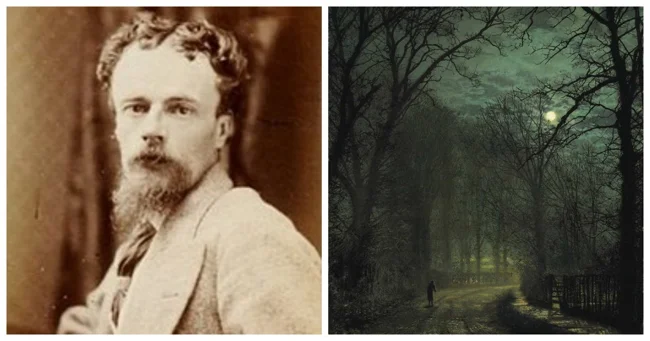
Little is known about his life. The painter worked mainly in the north of England. Most of his paintings are in private collections. Grimshaw did not become a fashionable artist, but at the same time he turned into a world-famous master. 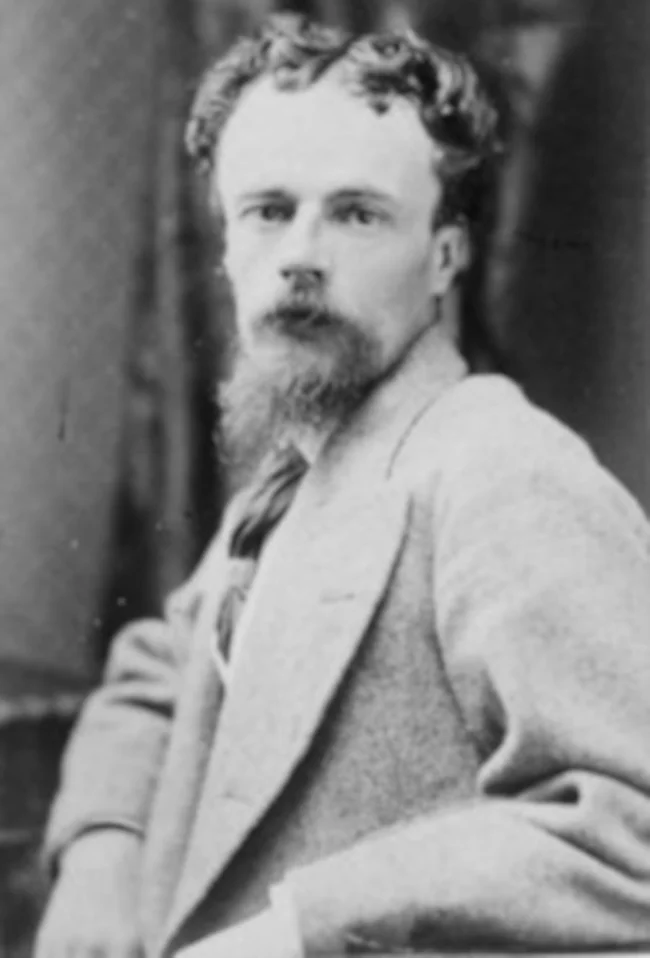
John Atkinson Grimshaw
John Atkinson Grimshaw was born in 1836 in Leeds. He began drawing while working as a clerk for the Northern Railway Company. He faced categorical rejection of his hobby from his parents. But after his marriage in 1858 and the beginning of an independent life, he was able to devote himself entirely to painting.
Grimshaw began exhibiting in Leeds in the 1860s with carefully rendered still lifes. By 1870 he had become successful enough to rent a 17th-century mansion. He called it "Castle by the Sea." The move to the coast inspired the artist to create many of his most compelling works. Throughout his career, he was always attracted to ships, the sea and docks and everything that was connected with this element. 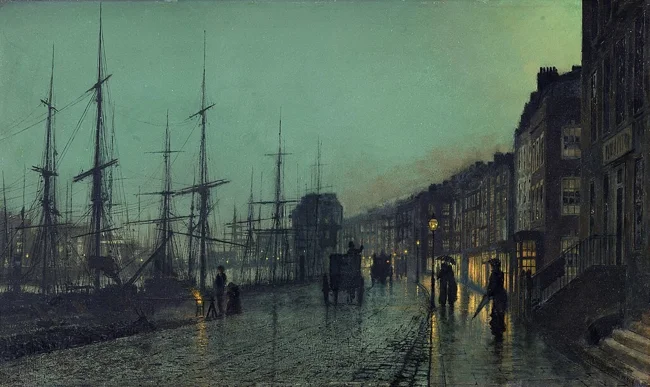

Ships on the Clyde
In the 1870s, Grimshaw experimented with a freer technique, creating classical, historical subjects and portraits of women. It was the latter that were especially successful. But the real breakthrough at that time was the night scenes. The same living moonlight with which the artist is usually associated today. In the middle of the decade he rented a second house in Scarborough, and many paintings of night seascapes appeared there. He also traveled to Liverpool and London in search of inspiration.
Grimshaw painted mainly for private clients, and between 1874 and 1886 he exhibited only 5 works at the Royal Academy.
The style and subject matter of Grimshaw's work changed little throughout his career. But at the same time, the painter constantly strived to improve his individual vision.
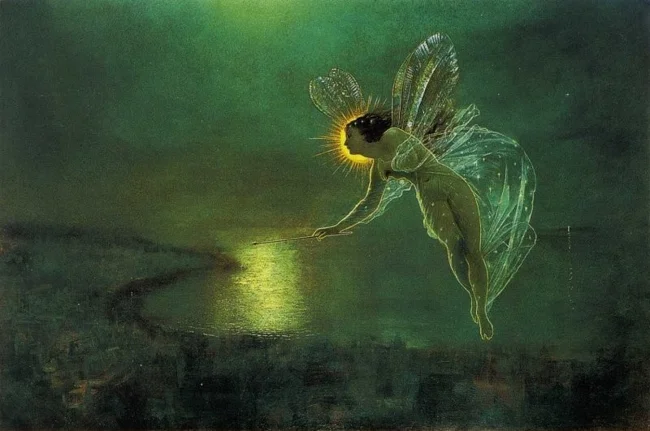
Spirit of the night
Around 1880, Grimshaw suffered a financial crisis and retired, returning to Leeds and increasing his output to fifty paintings a year. Around this time, elements of social realism appeared in his paintings. After all, night is the ideal time to capture less aesthetic forms of life. In the 1880s he continued to paint lunar paintings, especially street and dock scenes, but also continued to experiment. He tried to paint on top of photographs, which shocked some contemporary art critics. He also tried to paint much less accurate, almost naive paintings. Grimshaw even tried to draw fairies.
Two of his sons, Arthur and Louis, were also artists. It is possible that Grimshaw would still find something to surprise this world with. But, unfortunately, the inventive artist died of cancer on October 31, 1893 at the age of 57.
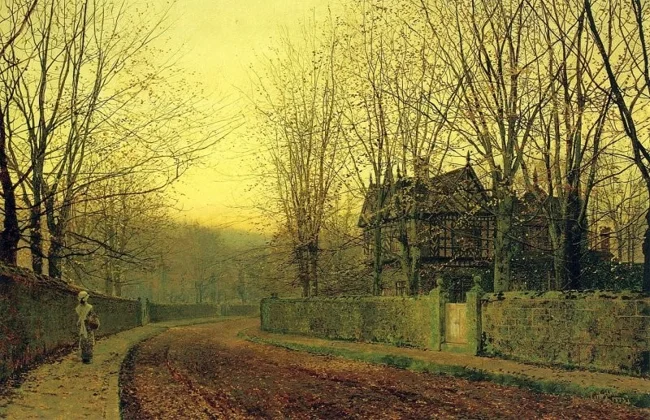
Last light
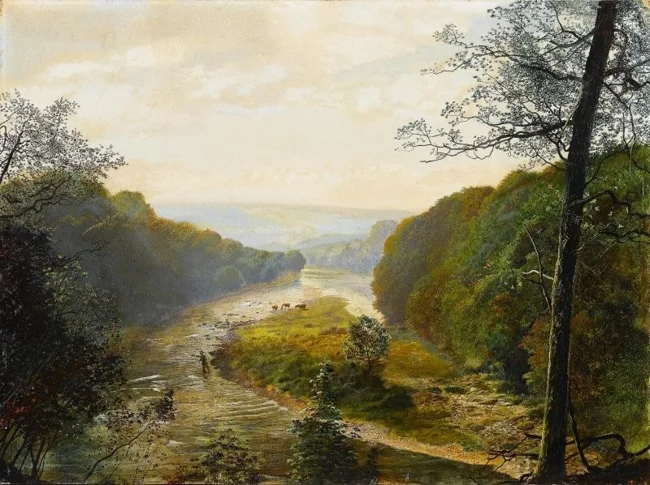
In the Wharfedale Valley
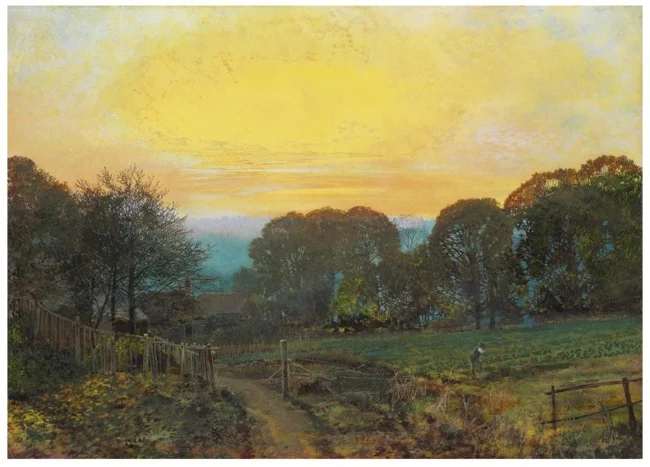
Twilight
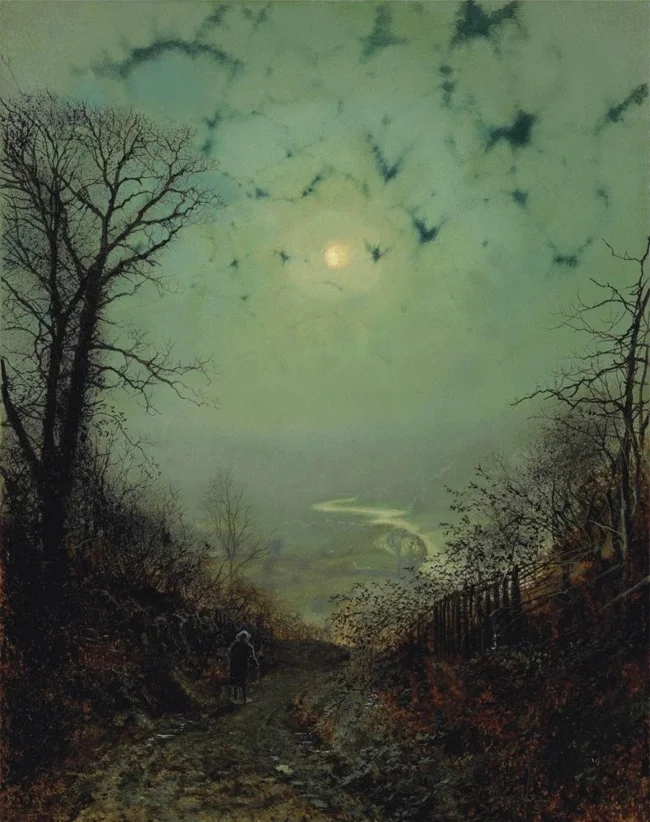
Wharfedale Valley
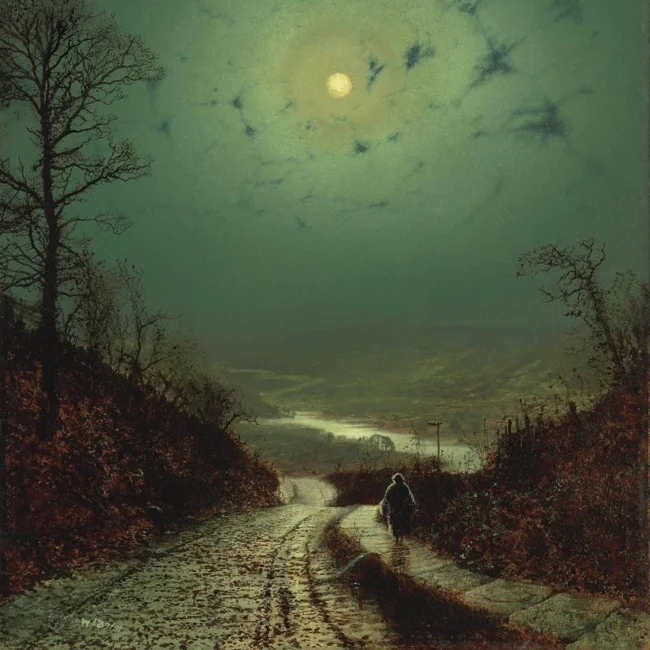
Moonlight
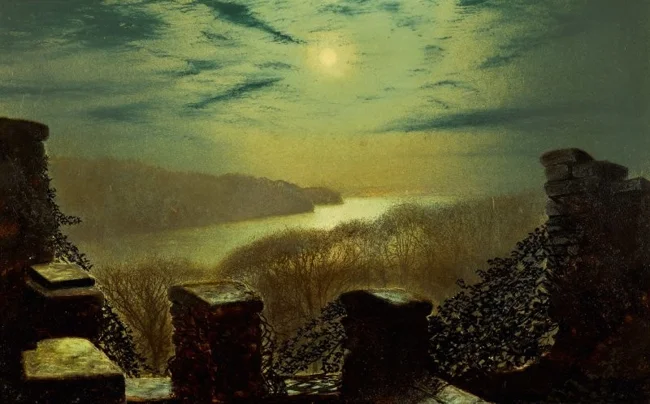
Full moon in Roundhay Park
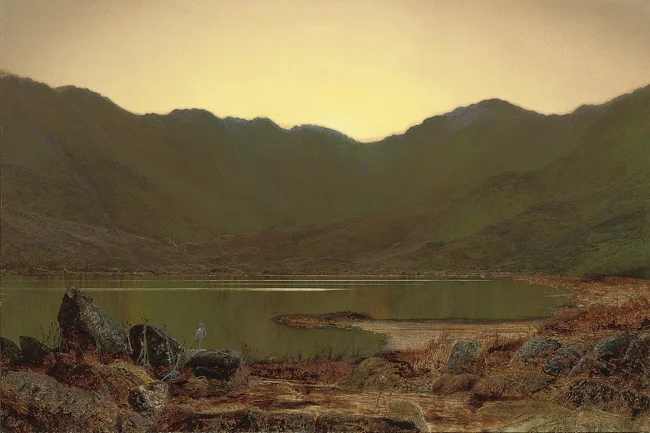
Heron Sanctuary
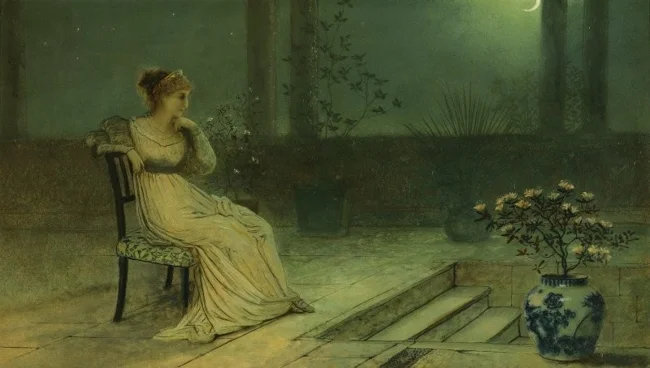
Classic maiden in the moonlight on the terrace
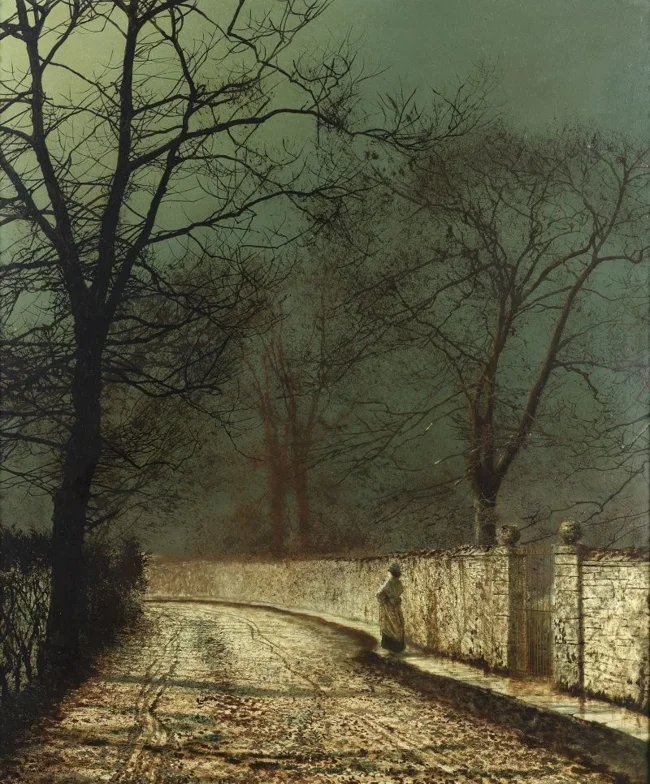
November night
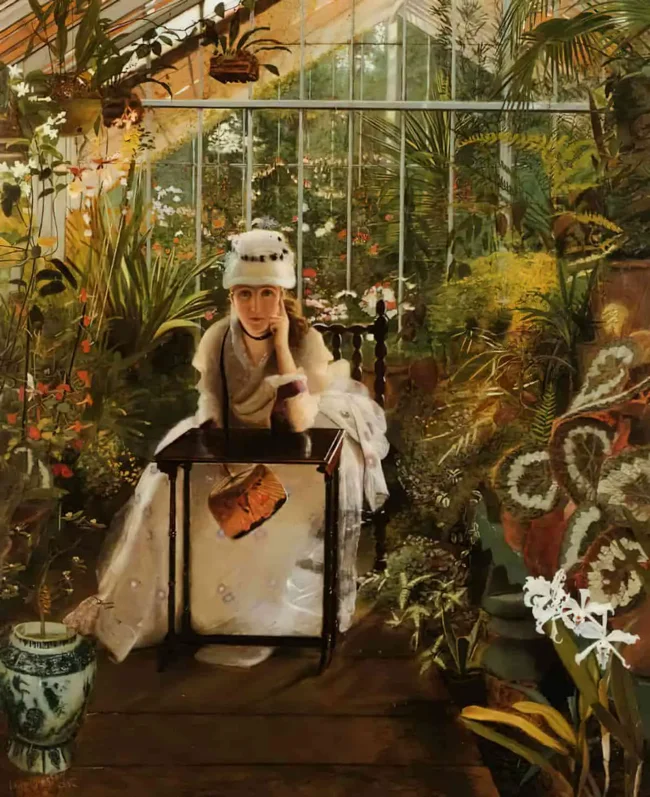
Female portrait
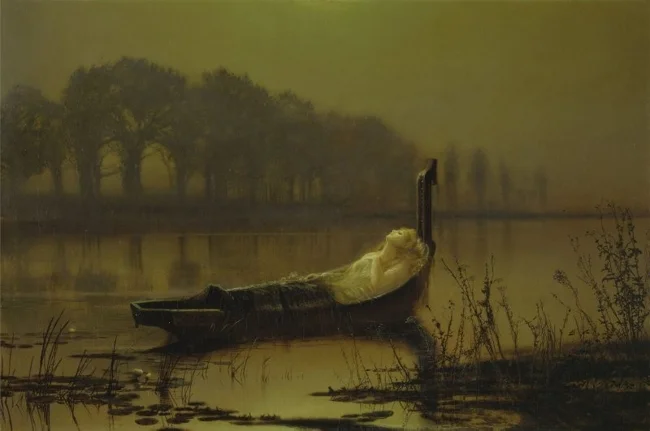
Lady of Shalott
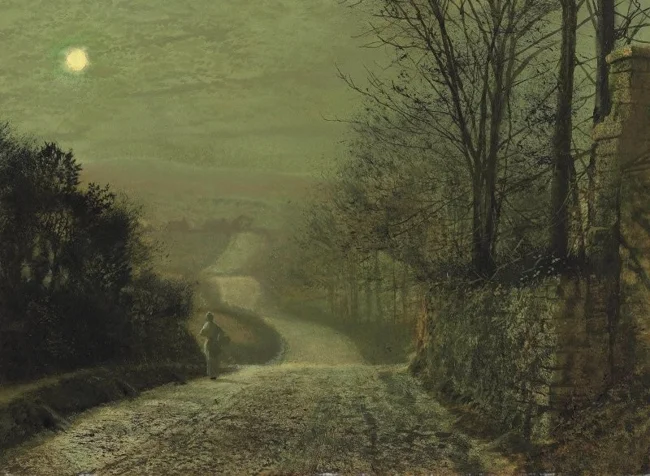
Rural road in the moonlight
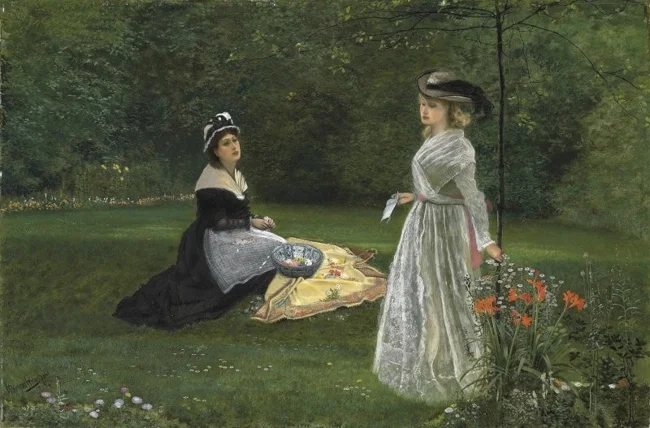
Good advice
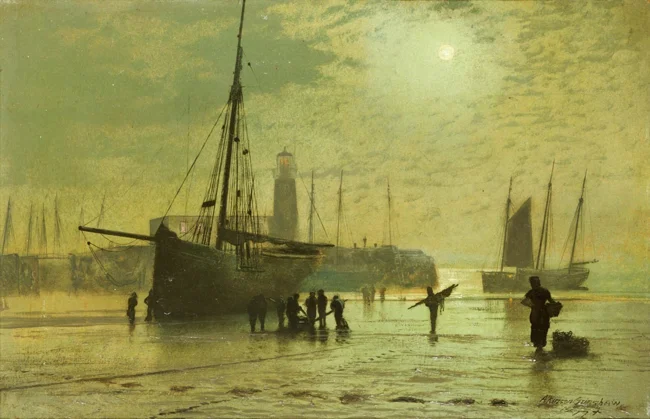
Scarborough Lighthouse
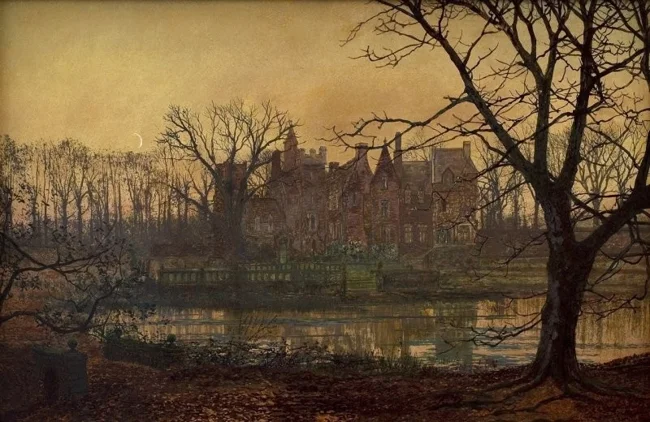
Old manor at sunset
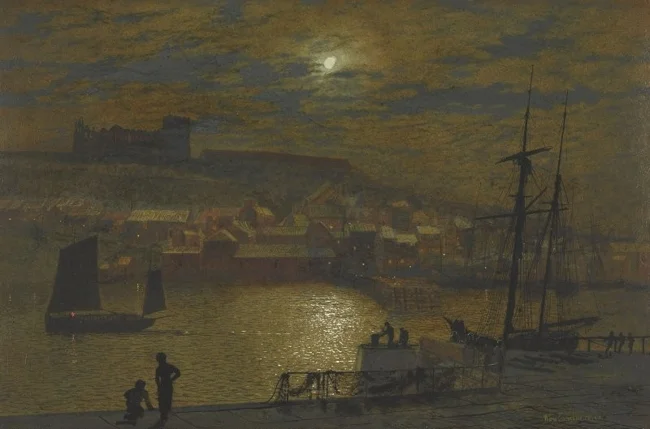
Esk in the moonlight
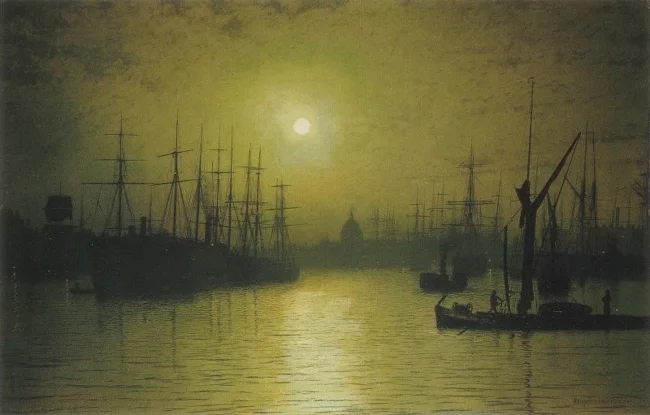
Night on the Thames
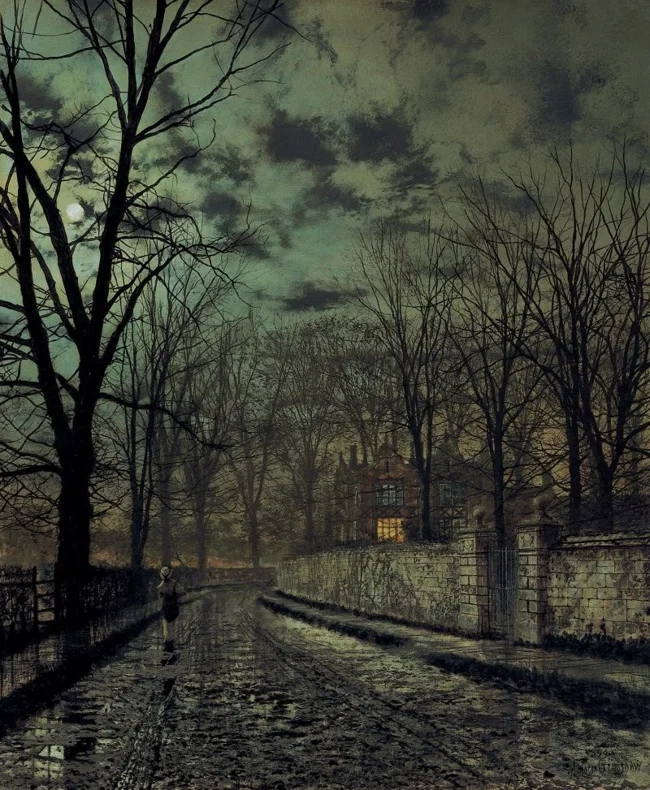
November
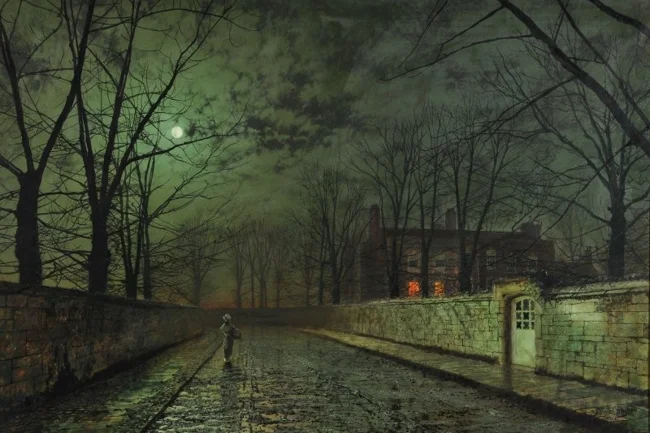
Moonlight Silver
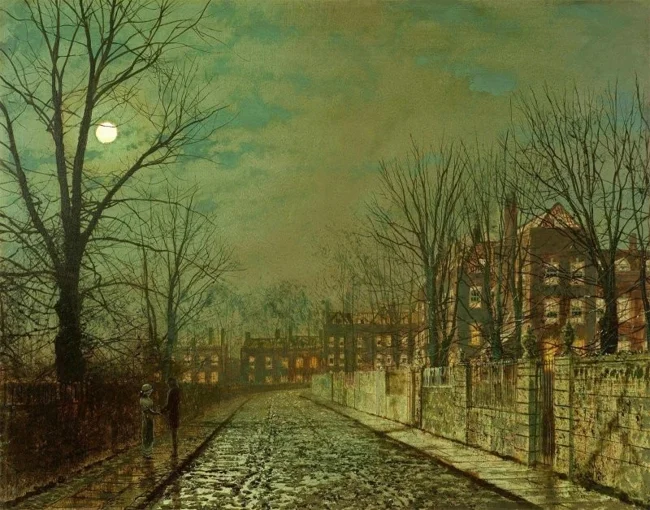
Date under the trees
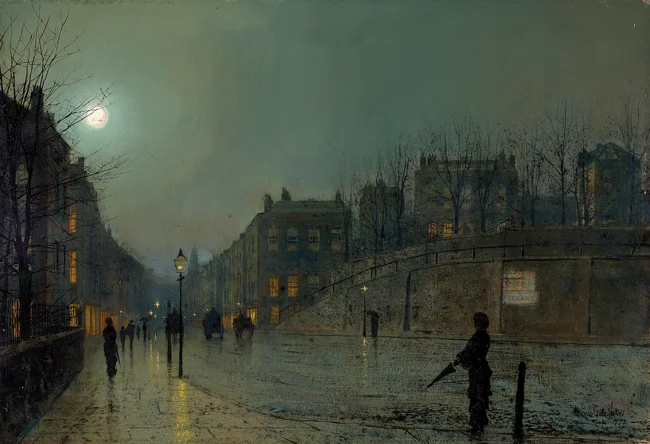
Home at dusk
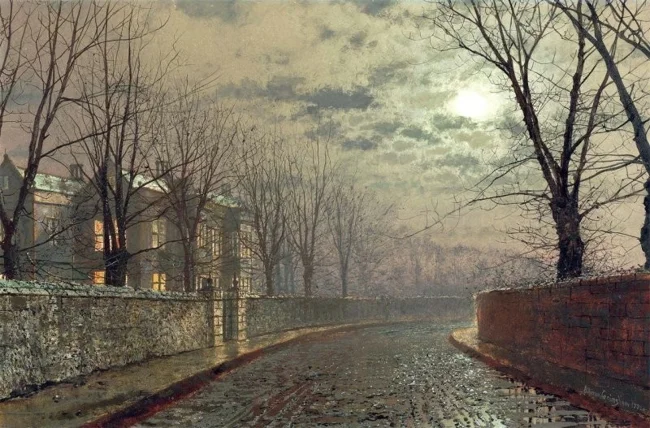
Moonlight Silver
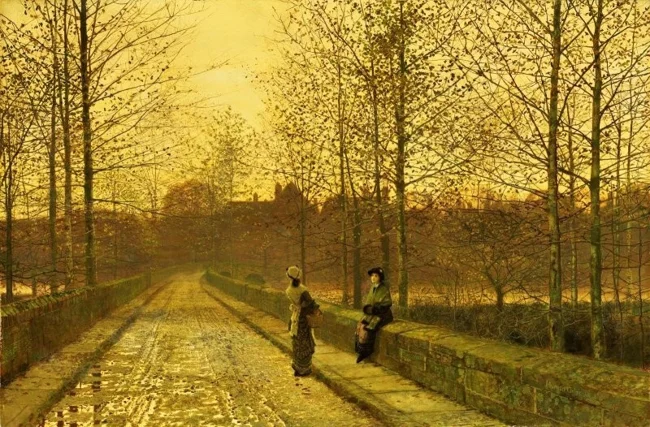
In the golden twilight
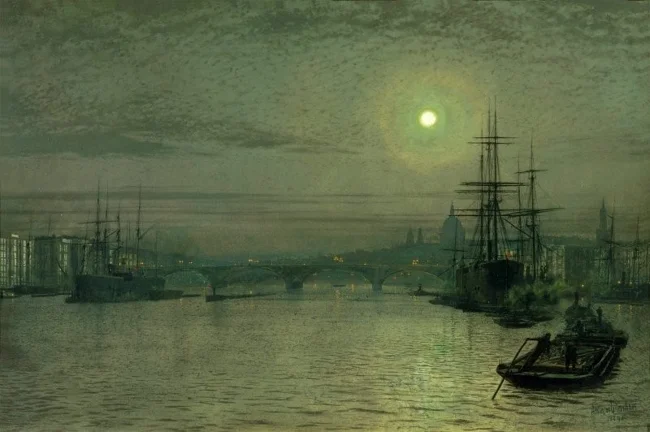
London Bridge at night
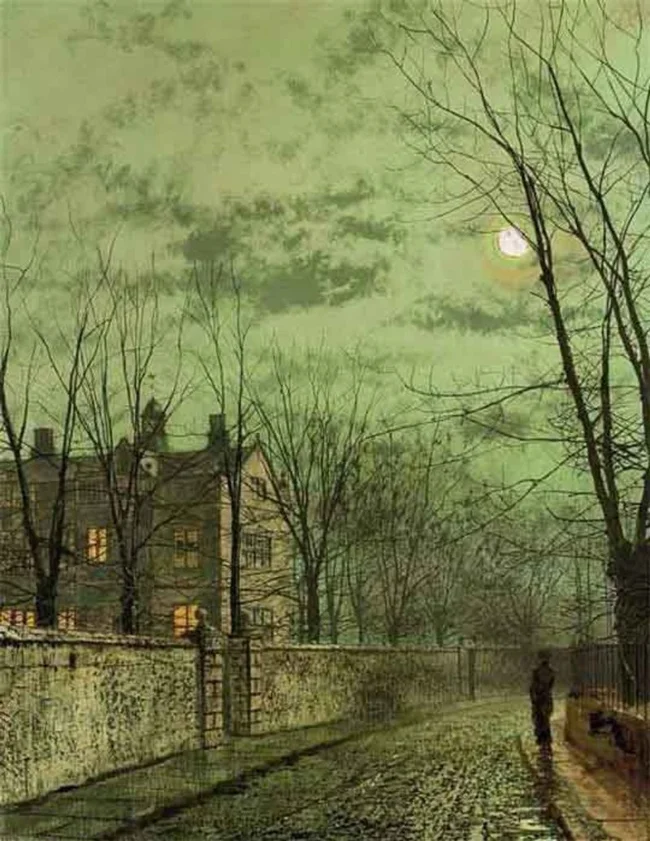
In the rays of the moon
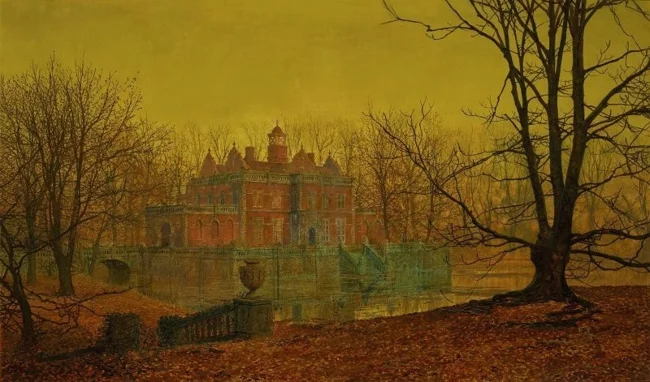
House with the ghosts

